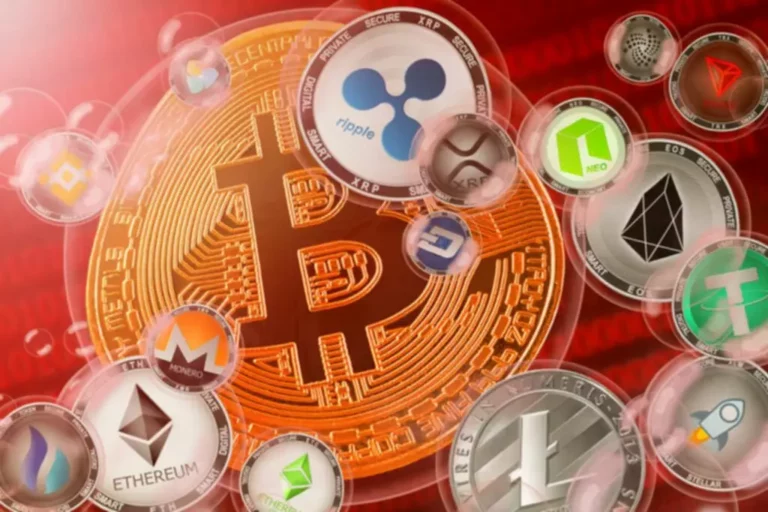
In practice, it all boils down to this, however – specialists focus on certain securities and sometimes have a monopoly on the order flow of one or more securities. To begin with, a brokerage is a person or more commonly a firm that is authorized to execute buy and sell orders on the behalf of the client. Brokers act as intermediaries between clients and market makers – and market makers act as intermediaries between brokerages and the wider market, much like a wholesaler. Exchanges like the NYSE and NASDAQ serve to provide a marketplace where buyers and sellers can meet.
Many discount brokers offer online trading platforms, which are ideal for self-directed traders and investors. For all of these services, investors usually pay higher commissions for their trades. Brokers also get compensation based on the number of new accounts they bring in and their clients’ trading volume. Brokers also charge fees for investment products as well as managed investment accounts. Some brokers cater to high-net-worth clients with assets of $1 million or more. The difference between the ask and bid price is only $0.05, but the average daily trading volume for XYZ might be more than 6 million shares.
That’s it for this guide – we hope enterprising investors around the globe will find it helpful. This topic is firmly tied to factors such as liquidity, stock volume, and trading fees – all of which are important when investing. In practical terms, these differences don’t mean much – they don’t affect the way retail investors experience the market, and depend only on the exchange in question. In return for that benefit, anyone who wants to take care of a transaction has to pay a price.

High supply paired with low demand will be reflected in a low ask or bid price and low supply for an in high demand will result in a high ask or bid price. Therefore, market makers place buy and sell orders on a large scale, reflecting the supply and demand of a particular market. Another reason why market makers are needed is that they ensure price continuity on a market with a relatively narrow bid-ask spread, which we will get to in a moment. If the rule of price continuity is not observed, market makers tend to make losses.
Retail FX Pricing
Market makers profit by buying on the bid and selling on the ask. So if a market maker buys at a bid of, say, $10 and sells at the asking price of $10.01, the market maker pockets a one-cent profit. An order which is adding liquidity to the order book until another crypto trader picks it up helps to “make the market”. An easy way to learn everything about stocks, investments, and trading.
The prices they set reflect the supply and demand of stocks and traders. They provide liquidity in the markets by placing large volume orders. PFOF is essentially a “rebate” from market makers to brokerage firms for routing retail buy or sell orders to them. All five exchanges have https://www.xcritical.in/ a wide bid-ask spread, but the NBBO combines the bid from Exchange 1 with the ask from Exchange 5. As liquidity providers, market makers can quote or improve these prices. Suppose you want some cash, so you decide to sell a few hundred shares of a tech stock you’ve been sitting on.

All reviews, research, news and assessments of any kind on The Tokenist are compiled using a strict editorial review process by our editorial team. Neither our writers nor our editors receive direct compensation of any kind to publish information on tokenist.com. Our company, Tokenist Media LLC, is community supported and may receive a small commission when you purchase products or services through links on our website. Click here for a full list of our partners and an in-depth explanation on how we get paid. Market makers are an important part of the markets that maintain efficiency and ease of doing business – but most investors don’t actually know how they work. The next thing you want to consider is the trading platform offered by the market maker.
A market maker is an individual or broker-dealer that operates on a stock exchange, buying and selling shares for their own account. Market makers earn a profit both from collecting the spread between the bid and ask prices of a security and also from holding inventory of shares throughout the trading day. Unlike crypto traders, market makers do not make money by buying low or selling high but through spreads. The spread between the price traders receive and the market price is the market maker’s profit. Typically market makers also charge crypto exchanges a general fee for their services.
In this article, you will find out about market makers and their role.
Stockbrokers and market makers are completely different. Stock brokers are the intermediary between traders and companies, while a market maker is a liquidity provider for the market. Some stock brokers are market makers as well, but not all market makers are stockbrokers.
With advancements in technology and the internet, online brokerage firms have experienced an explosion of growth. These discount brokers allow investors to trade at a lower cost, but there’s a catch; investors don’t receive the personalized investment advice that’s offered by full-service brokers. This system of quoting bid and ask prices is good for traders. It allows them to execute trades more or less whenever they want. When you place a market order to sell your 100 shares of XYZ, for example, a market maker will purchase the stock from you, even if it doesn’t have a seller lined up. The opposite is true, as well, because any shares the market maker can’t immediately sell will help fulfill sell orders that will come in later.
Broker vs. Market Maker: An Overview
This type of behavior can cause a lot of turmoil in the markets because it impacts peoples’ savings and investments. When few shares are being sold, any significant buy could push prices up significantly. As the supply of a stock dwindles, it becomes easier for one large purchase to cause significant movements in price. Stop-loss orders such as trailing stop orders stay in place directly visible only with your broker, rather than getting canceled and replaced in the actual marketplace exchange.
- This article does not constitute investment advice, nor is it an offer or invitation to purchase any digital assets.
- Ian worked for Kerrisdale, a New York activist hedge fund, for three years, before moving to Latin America to pursue entrepreneurial opportunities there.
- Market-making facilitates a smoother flow of financial markets by making it easier for investors and traders to buy and sell.
Karl Montevirgen is a professional freelance writer who specializes in the fields of finance, cryptomarkets, content strategy, and the arts. Karl works with several organizations in the equities, futures, physical metals, and blockchain industries. He holds FINRA Series 3 and Series 34 licenses in addition to a dual MFA in critical studies/writing and music composition from the California Institute of the Arts. Brokers must register with the Financial Industry Regulatory Authority (FINRA) while investment advisers register through the U.S. Securities and Exchange Commission (SEC) as Registered Investment Advisors or RIAs. Brokers have an obligation to act in the best interests of their clients.
European Central Bank hikes rates, signals extended rate pause – FXStreet
European Central Bank hikes rates, signals extended rate pause.
Posted: Fri, 15 Sep 2023 16:21:28 GMT [source]
The presence of competition (among traders, investors, and especially market makers) is what generates liquidity and drives market efficiency. In times of volatility, the relatively stable demand of market makers keeps the buying-and-selling process moving. Market makers are high-volume traders that “make a market” for securities by always standing at the ready to buy or sell. They profit on the bid-ask spread and they benefit the market by adding liquidity. The specialist must also set the opening price for the stock each morning, which can differ from the previous day’s closing price based on after-hours news and events.
When retail traders place orders, they work to keep stocks liquid. They make prices more efficient crypto market making to keep order flow moving. Even with commission-free trades, brokers get their cut.
Recent Posts
Recent Comments
Categories
- ! Без рубрики (9)
- 1 (16)
- 11 Best Sports Betting Sites in India Grab Large Odds Bonuses 962 (1)
- 1w (1)
- 1win Azerbajany (3)
- 1Win Brasil (1)
- 1WIN Official In Russia (9)
- 1xbet apk (13)
- 1xbet Argentina (4)
- 1xbet Azerbajan (4)
- 1xbet Azerbaydjan (5)
- 1xBet Azərbaycan yükle Android və iPhone: bonus 100 , giriş, idman mərcləri 42 (4)
- 1xbet Bangladesh (1)
- 1xbet Brazil (2)
- 1xBet Casino Hasta 1500 + 150 Tiradas Gratis 477 (3)
- 1xbet giriş (4)
- 1xbet Kazahstan (5)
- 1xbet qeydiyyat (3)
- 291 (1)
- 336 (4)
- 5 (1)
- 5.03-2 (1)
- 8.02 (1)
- Amd Radeon Adrenalin 2022 Edition Graphics Driver 22 12 2 Hotfix Download 983 (4)
- articles (3)
- AVİATORDAN PUL QAZANMAQ 2022 YENİ XƏSTƏLİK AVİATOR CASİNO MOSTBET 541 (4)
- Azerbajany Mostbet (3)
- Azərbaycan futbolunun tarixi: mühüm hadisələr Futbol 326 (1)
- b1bet apostas (6)
- Betmotion brazil (1)
- Bettilt casino (1)
- bht2 (2)
- blog (5)
- Bookkeeping (3)
- btt2 (2)
- Bütün nəticələrə baxın .. 44 (2)
- casino (7)
- Casino Online (3)
- casinom-hub.comsitesi apr (1)
- Codere Argentina (3)
- Codere Italy (6)
- Código Promocional 1xBet 2023 Cómo Canjear y Beneficios del Código 282 (1)
- Cryptocurrency exchange (1)
- Cryptocurrency News (1)
- das beste Casino Deutschlands 50 (4)
- David 'Kochie' Koch quits Sunrise to work on other projects and spend more time with family – 167 (1)
- Education (1)
- find a wife (1)
- FinTech (1)
- Forex Trading (8)
- Generative AI (6)
- Gözdən əlillər üçün Respublika Kitabxanasında Sevda Dəlidağlı ilə görüş 105 (3)
- hottest women (1)
- Immediate Edge Review: How Immediate Edge App Software Works? – 900 (1)
- Immediate Edge Reviews Read Customer Service Reviews of immediateedge biz – 953 (3)
- India Mostbet (6)
- IT Vacancies (1)
- IT Образование (2)
- kosmos (1)
- LeoVegas Finland (3)
- LeoVegas India (5)
- LeoVegas Irland (4)
- LeoVegas Sweden (5)
- mail order bride (1)
- mail order brides (1)
- mail order wife (1)
- mostbet apk (20)
- mostbet az 90 (19)
- MostBet AZ Most Bet Casino Qeydiyyat, Yukle Android App 35 (3)
- MostBet AZ Most Bet Casino Qeydiyyat, Yukle Android App 코아시아넥셀 – 758 (4)
- Mostbet Azerbaijan (5)
- Mostbet Azerbaycan (10)
- mostbet dec (1)
- mostbet giriş (9)
- Mostbet Giriş ᐈ Mostbet Türkiye Kayıt ve Giriş Adresi 2023 531 (3)
- Mostbet in Turkey (5)
- Mostbet India (6)
- mostbet kazino Promosyon 101 863 (2)
- mostbet kirish (3)
- mostbet oynash (1)
- mostbet ozbekistonda (2)
- Mostbet Promo Code for India for Free 921 (4)
- mostbet royxatga olish (1)
- Mostbet Türkiye için en güvenilir bahis ve casino sitesi 728 (4)
- mostbet uz (6)
- mostbet uz kirish (3)
- Mostbet Uzbekistan (3)
- mostbet-ru-serg (5)
- New (1)
- NLP algorithms (1)
- pagbet brazil (1)
- Paribahis (1)
- PB_TOPsitesi apr (1)
- pbt2 (3)
- Pin Up Peru (1)
- PinUp apk (32)
- pinup Brazil (4)
- Potenzmittel (1)
- resmi site Mostbet Türkiye kumarhanesine giriş Mostbet resmi aynasından para için çevrimiçi oynayın, kayıt olun 469 (1)
- sahabet dec (1)
- Sober living (1)
- Software development (4)
- Test 4 (1)
- Türkiye'deki MostBet bahis şirketine genel bakış 668 (4)
- Ucategorized (1)
- Uncategorized (7,232)
- Vulkan Vegas Bonus bez depozytu 50 Darmowych spinów 702 (4)
- Vulkan Vegas DE (8)
- vulkan vegas DE login (5)
- Vulkan Vegas Poland (3)
- VulkanVegas Poland (7)
- Who Can Witness A Marriage Certificate (1)
- Yarışda kim qalacaq: Avropa Liqasının pley-off oyunları 295 (4)
- казино (1)
- Мобильная версия БК Мостбет официальный сайт Mostbet для смартфонов и планшетов 152 (4)
- Финтех (2)
- Форекс Брокеры (3)
- Форекс Обучение (4)
- Форекс партнерская программа (1)
- コニベット (1)
Archive
- May 2024 (1524)
- April 2024 (1838)
- March 2024 (1548)
- February 2024 (853)
- January 2024 (412)
- December 2023 (477)
- November 2023 (272)
- October 2023 (165)
- September 2023 (128)
- August 2023 (10)
- July 2023 (12)
- June 2023 (12)
- May 2023 (11)
- April 2023 (13)
- March 2023 (6)
- February 2023 (16)
- January 2023 (9)
- December 2022 (14)
- November 2022 (28)
- October 2022 (41)
- September 2022 (36)
- August 2022 (57)
- July 2022 (50)
- June 2022 (50)
- May 2022 (35)
- April 2022 (30)
- March 2022 (15)
- February 2022 (2)
- December 2021 (1)
- October 2021 (2)
- March 2021 (1)
- February 2021 (4)
- January 2021 (2)